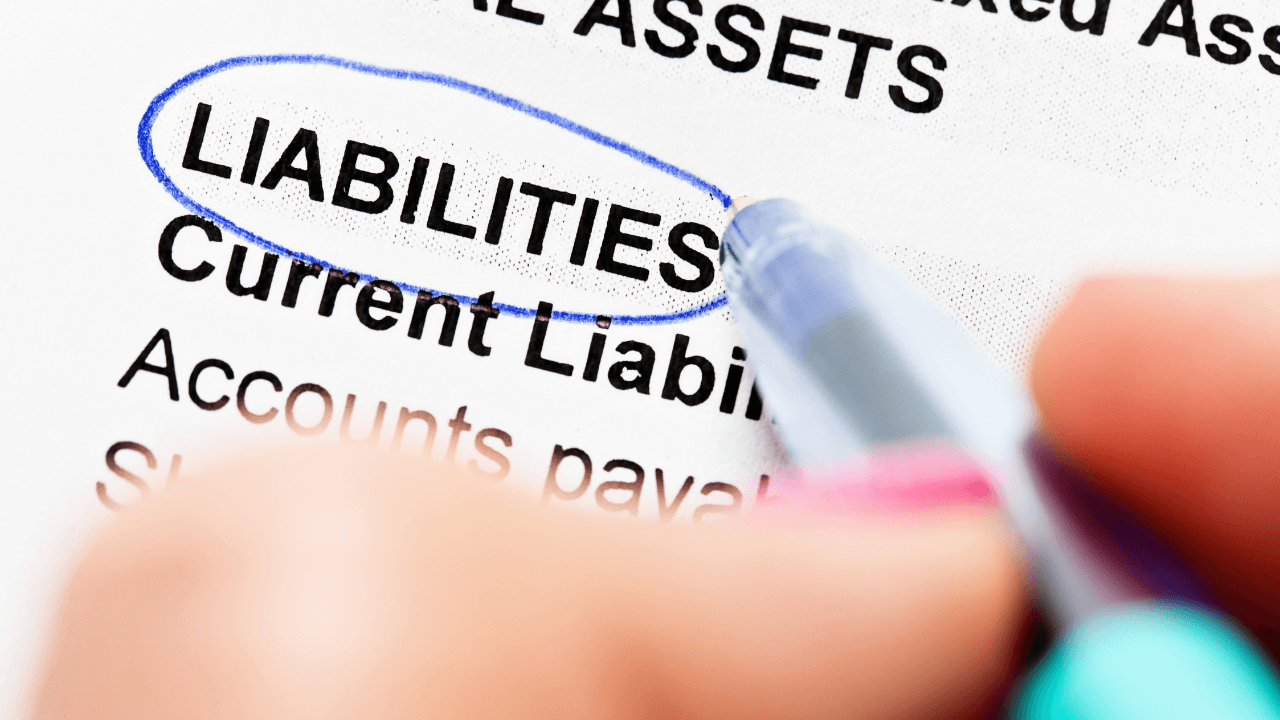
Let’s start with a situation you’ve probably been in before.
It’s the end of the quarter, and you’re reviewing your finances, feeling pretty good. Sales are steady, invoices are paid, and for once, there are no major fires to put out.
Then, BAM! A surprise expense appears out of nowhere.
It can be anything. Payroll taxes you forgot to record. Interest fees from a loan that have been quietly adding up. Or, a vendor invoice you thought was settled but somehow wasn’t.
That “missing” expense can be termed as Accrued Liabilities.
Simply put, these are expenses your business has incurred but haven’t been paid yet. They don’t always show up on your bank statement right away, but they need to be accounted for. Plus, when they’re overlooked, they can throw off your entire budget.
But here’s some relief: With the right bookkeeping approach, you can track them, manage them, and avoid nasty financial surprises.
Let’s break it all down so you can make sure unexpected costs don’t derail your growth and financial plans.
What Are Accrued Liabilities?
Accrued liabilities are expenses your business has already used but hasn’t paid for yet. They’re costs that exist, even if the bill hasn’t landed on your desk.
Think of it this way: You’ve been using electricity all month, but the bill doesn’t show up until the end of the cycle. Even though you haven’t paid it yet, you owe that money. And that’s an accrued liability.
In business, these can include payroll you owe employees, interest on loans, or services you’ve received but haven’t been billed for yet.
Types of Accrued Liabilities
Here are the most common accrued liabilities small business owners need to track:
1. Salaries and Wages Payable
If payday falls after the end of the accounting period, those unpaid wages are accrued liabilities until you cut the checks.
2. Interest Payable
Loans don’t just sit there, they collect interest. Even if your payment isn’t due yet, the interest is still accruing.
3. Taxes Payable
Sales tax, payroll tax, property tax — if you owe it but haven’t paid it yet, it’s an accrued liability.
4. Utilities and Rent
You’re using water, gas, and electricity every day, but the bill comes later. That’s also an accrued expense.
5. Professional Services
If you’ve worked with an accountant or consultant but haven’t received their invoice yet, it’s still an accrued expense you need to account for.
Accrued Liabilities vs. Accounts Payable: What’s the Difference?
At first glance, accrued liabilities and accounts payable seem similar.
But here’s the key difference:

Think of It This Way:
Accrued Liability: Let’s say, you own a bakery. Your employees worked the last two weeks of March, but payday isn’t until April 1st. You owe them wages, but you haven’t actually paid them yet.
Accounts Payable: You received a flour shipment last week, and the supplier sent you an invoice due in 30 days. You have the bill in hand but haven’t paid it yet.
How to Record Accrued Liabilities in Your Books
Recording accrued liabilities might sound intimidating, but it’s actually pretty simple.
Here’s how to do it:
1️⃣ Identify the expense – What cost has your business incurred but not paid yet?
2️⃣ Estimate the amount – If there’s no invoice yet, use past expenses as a guide.
3️⃣ Make a journal entry – Debit the expense account and credit the accrued liability account.
4️⃣ Reverse the entry once paid – Once the payment is made, clear the liability from your books.
Pro Tip: If this sounds too confusing, get in touch with doola’s bookkeeping team. Our experts can handle this for you, so you never have to worry about missing a liability again.
Accrued Liabilities Example for Small Businesses

Let’s say you run a marketing agency, and you pay your employees on the 3rd of every month.
But here’s the thing: your team worked the last week of March, and even though they earned their salaries in March, you won’t actually pay them until April 3rd.
Now, if you don’t record this in March, your financial reports will look wrong.Your profits will seem higher than they actually are because they don’t include the salaries you still owe.
This is where accrued liabilities come in. They help you track expenses that you haven’t paid yet, so your books reflect reality.
How To Record It
🗓 March 31 (End of the Accounting Period)
Even though you haven’t paid your employees yet, you still owe them money. So, you record it like this:
Debit: Salaries Expense – $10,000 (recognizing the salary cost)
Credit: Accrued Salaries Payable – $10,000 (acknowledging the debt)
Now, your books show the real cost of running your business in March.
🗓 April 3 (Payday – When Salaries Are Actually Paid)
Now it’s time to send out salaries. So, you clear out the liability from your books:
Debit: Accrued Salaries Payable – $10,000 (removing the owed amount)
Credit: Cash – $10,000 (showing money leaving your account)
In simple terms, accrued liabilities make sure you don’t accidentally “forget” about expenses just because you haven’t paid them yet.
Interesting Read: Common Shopify Accounting Mistakes and How to Avoid Them
Best Practices for Tracking and Managing Liabilities

Here are some simple, effective ways to stay on top of your business liabilities:
Track Expenses in Real-Time
Waiting until the end of the month (or worse, the end of the quarter) to record expenses will complicate your financial journey. You’ll either forget them or get blindsided when payments are due.
Here’s what you should be doing right away:
- Keep a running list of all upcoming expenses, even if you haven’t been invoiced yet.
- Use an accounting software like doola to track your expenses
- If you’re old-school, a Google Sheet works too. Just update it regularly.
Separate “Planned” vs. “Surprise” Expenses
Not all liabilities fall under the same bucket. Some, like payroll and rent, are predictable. Others, like emergency repairs or last-minute service fees, are mostly hidden.
Try doing this to simplify your expenses:
For planned liabilities → Budget for these in advance (salaries, taxes, vendor payments).
For unexpected liabilities → Keep a buffer fund (at least one month’s expenses) for surprise costs.
Get Professional Help, Before You Need It
Small business owners juggle a lot, and bookkeeping mistakes can be costly. If tracking liabilities feels like a pounding migraine attack, you don’t have to do it alone.
You can sign up with doola or work with a bookkeeper to ensure everything is recorded correctly.
Set Up Reminders for Due Payments
The worst thing you can do is forget to pay what you owe. Missed payments can lead to late fees, penalties, or worse, can damage relationships with vendors.
Here are some tricks to stay alert:
- Use calendar alerts for upcoming payments.
- Set up auto-pay for recurring expenses.
- Have a weekly check-in on what’s due in the next 30 days.
Why doola Is the Best Choice for Tracking and Managing Expenses

Managing business finances can get messy, but doola makes it simple.
Here’s why entrepreneurs, solopreneurs, and freelancers trust doola for their bookkeeping needs:
Tracks all income sources effortlessly – Whether it’s AdSense, sponsorships, merch sales, or client payments, doola keeps everything in one place.
Automates expense categorization – No more manual sorting; doola ensures you’re always tax-ready without any extra hassle.
Provides expert support when you need it – Have questions? Get direct help from a team that understands your business completely.
Flexible and affordable pricing – Plans start at just $25/month, with options for software-only or expert-managed bookkeeping.
Delivers in-depth financial reports – Get a clear snapshot of your business’s financial health so you can make informed decisions.
Helps you set up a U.S. business bank account – Need a U.S. bank account for international transactions or expanding your business? doola simplifies this entire process as well.
Assigns a dedicated bookkeeping team – Tailored financial solutions based on how your business operates.
Handles multi-currency transactions with ease – If you’re working with international clients, doola helps track global income without confusion.
Want bookkeeping to be seamless? Book a free demo with our experts and let them handle the numbers.
FAQs About Accrued Liabilities

What is the difference between accrued liabilities and accrued expenses?
Accrued liabilities refer to all unpaid obligations a business has incurred, while accrued expenses specifically refer to operational costs like salaries, interest, or utilities that haven’t been paid yet.
How do accrued liabilities affect financial statements?
Accrued liabilities ensure expenses are recorded in the correct period, keeping financial statements accurate and reflecting the true financial position of the business.
Can accrued liabilities impact cash flow?
Yes. Since accrued liabilities represent unpaid obligations, businesses must plan ahead to ensure they have enough cash to cover these upcoming payments.
Do all businesses need to record accrued liabilities?
Yes, especially those using the accrual accounting method, as it provides a more accurate picture of financial health.
What happens if accrued liabilities are not recorded properly?
It can distort financial statements, misrepresent profits, and lead to cash flow mismanagement, causing issues with budgeting and compliance.



